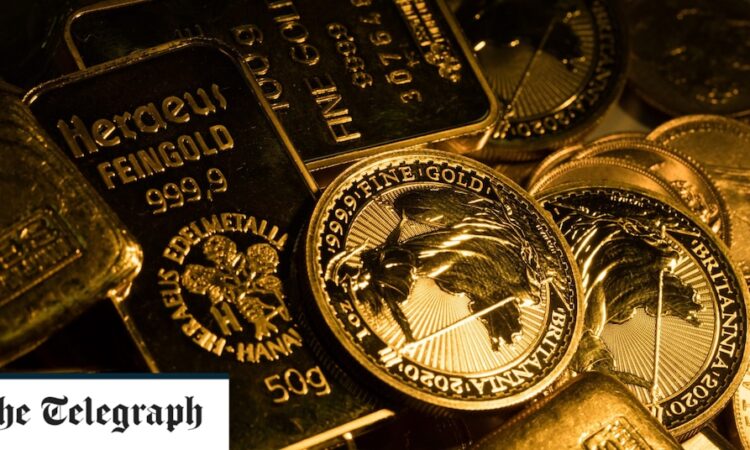
A record central bank gold rush has been triggered by fears of Western sanctions after Russia was made a pariah state in the wake of its invasion of Ukraine, according to the World Gold Council.
Officials in many countries outside the West are rethinking their foreign currency reserves after the sanctions meant Russia’s central bank lost the use of its war chest, hampering its ability to protect the ruble and its banking system.
Central banks snapped up more gold in the first nine months of 2022 than all the annual totals since 1967, according to the WGC. Almost 400 tonnes of gold were bought by central banks in the third quarter, quadruple the amount acquired in the same period a year earlier.
John Reade, chief market strategist at the WGC, said: “At the margin, it served to increase the tendency of emerging market central banks to diversify away from the reserve currencies they have in their portfolio, and add to gold.
“It certainly made them think about what international reserves mean, what they should hold, how they should hold them.”
Mr Reade added that central bankers are “between a rock and a hard place” because of the “liquidity and accessibility of non-Western bond markets”.
Turkey, Qatar and India have been among the biggest central bank buyers of gold while China reported an increase in its reserves for the first time in three years amid speculation it is trying to diversify from the US dollar.
Mr Reade said that most of the central banks buying gold are in a “non-aligned group” that are independent of the West.
“All the indications we get from our surveys of central banks is that we’ll continue to see central bank buying of gold, and it’s concentrated within the emerging market countries,” he said.
Russia had built up more than $600bn of foreign currency reserves but Western sanctions meant it lost access to almost half of the war chest following its invasion. The ruble plunged in the weeks following the war before the Kremlin moved to protect the ruble by imposing strict capital controls.






